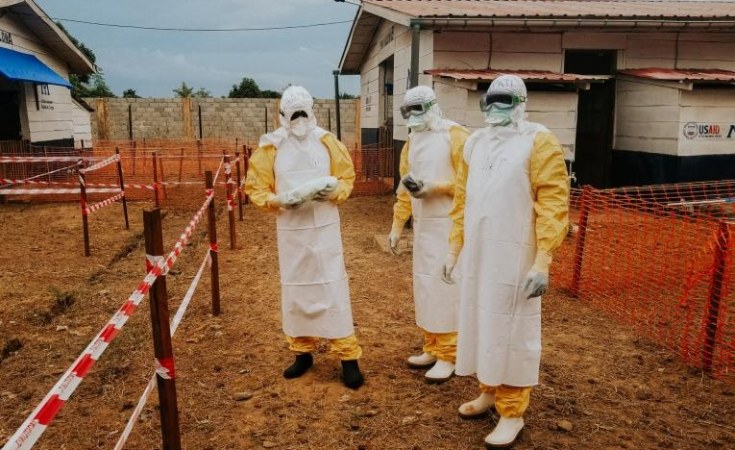Nairobi — The Ministry of Health has issued an Ebola alert and asked counties to be vigilant and enhance surveillance at the border points after one person died in Uganda on Tuesday.
Health Cabinet Secretary Mutahi Kagwe advised Governors to activate rapid response teams to support the identification of any suspected cases and make prompt reporting.
"As the Ministry takes up these measures, and whilst we do not wish people to go into any panic, I call on members of the public to take heightened precautions while visiting Uganda as well as the Democratic Republic of Congo," Kagwe said.
Kagwe further emphasized the need for the counties to carry out screening of at-risk populations including travelers, truck drivers, bush meat handlers, and health care workers.
Other measures include - sensitizing the community to identify suspected cases, sensitizing health care workers on infection, prevention and control (IPC) measures, case management, and sample management.
"The general public is also advised to watch out for any person presenting with acute onset of fever and any of the following signs, especially if in contact with persons with a history of travel from Uganda and/or Democratic Republic of Congo within the previous three weeks," Kagwe said.
Uganda's health ministry on Tuesday announced the country's first fatality from the highly contagious Ebola virus since 2019, declaring an outbreak in the central district of Mubende.
Uganda -- which shares a porous border with the Democratic Republic of Congo (DRC) -- has experienced several Ebola outbreaks in the past, most recently in 2019, when at least five people died.
The DRC last month recorded a new case in its violence-wracked east, less than six weeks after an epidemic in the country's northwest was declared over.
Ebola is an often fatal viral hemorrhagic fever. The death rate is typically high, ranging up to 90 percent in some outbreaks, according to the WHO.
First identified in 1976 in the DRC (then Zaire), the virus, whose natural host is the bat, has since set off a series of epidemics in Africa, killing around 15,000 people.
Human transmission is through body fluids, with the main symptoms being fever, vomiting, bleeding, and diarrhea.
Outbreaks are difficult to contain, especially in urban environments.
People who are infected do not become contagious until symptoms appear, which is after an incubation period of between two and 21 days.
The worst epidemic in West Africa between 2013 and 2016 killed more than 11,300 alone. The DRC has had more than a dozen epidemics, the deadliest killing 2,280 people in 2020.
At present, there is no licensed medication to prevent or treat Ebola, although a range of experimental drugs are in development and thousands have been vaccinated in the DRC and some neighboring.


